Filter by
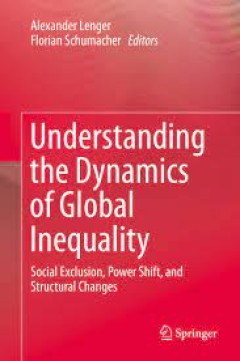
Understanding the Dynamics of Global Inequality Social Exclusion, Power Shif…
Despite the fact that the globalization process tends to reinforce existing inequality structures and generate new areas of inequality on multiple levels, systematic analyses on this very important field remain scarce. Hence, this book approaches the complex question of inequality not only from different regional perspectives, covering Africa, Asia, Europe, Latin and Northern America, but also …
- Edition
- -
- ISBN/ISSN
- 978-3-662-44766-6
- Collation
- 8 b/w illustrations
- Series Title
- -
- Call Number
- -

Local Firm Upgrading in Global Value Chains: A Business Model Perspective
Jan Hauke Holste analyzes how a company can innovate and change its business model to the degree that it can climb up the value chain. His research synthesizes a combination of the global value chain and the business model literature to create a new framework of local firm upgrading. The findings of an empirical test of the model indicate that local firms are more than just a link within a glob…
- Edition
- -
- ISBN/ISSN
- 978-3-658-09768-4
- Collation
- -
- Series Title
- -
- Call Number
- -

Educating generation next : young people, teachers and schooling in transition
Explores the challenges faced by young people in this environment as they transition from school to work and asks how well young people are prepared for the contemporary labour force during their school years. Is the current industrial model of schooling capable of preparing young people for working life of the 21st century?
- Edition
- -
- ISBN/ISSN
- 9781137526397
- Collation
- ix, 207 pages ; 23 cm
- Series Title
- -
- Call Number
- 370.113
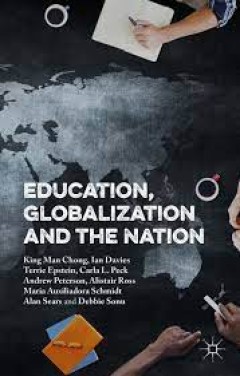
Education, Globalization and the Nation
Globalization' and 'the Nation' provide significant contexts for examining past educational thinking and practice and to identify how education has been influenced today. This book, written collaboratively, explores country case studies - Australia, Brazil, Canada, China, the UK and USA as well as discussing the transnational European Union.
- Edition
- 1
- ISBN/ISSN
- 978-1-349-55932-9
- Collation
- -
- Series Title
- -
- Call Number
- X, 224
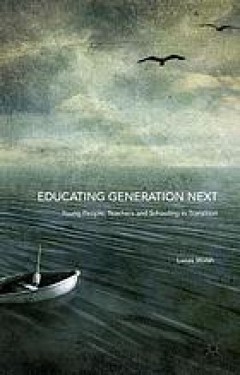
Educating generation next : young people, teachers and schooling in transition
Explores the challenges faced by young people in this environment as they transition from school to work and asks how well young people are prepared for the contemporary labour force during their school years. Is the current industrial model of schooling capable of preparing young people for working life of the 21st century?
- Edition
- -
- ISBN/ISSN
- 9781137526397
- Collation
- ix, 207 pages ; 23 cm
- Series Title
- -
- Call Number
- 379.1
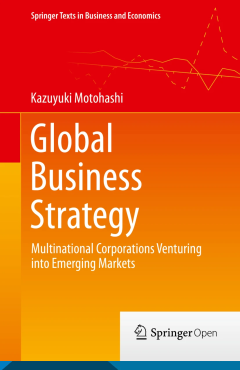
Global Business Strategy Global Business Strategy
This book presents theories and case studies for corporations in developed nations, including Japan, for designing strategies to maximize opportunities and minimize threats in business expansion into developing nations. The case studies featured here focus on Asia, including China and India, and use examples of Japanese manufacturers. Five case studies are provided, including Hitachi Construct…
- Edition
- -
- ISBN/ISSN
- 978-4-431-55467-7
- Collation
- XVII, 259
- Series Title
- -
- Call Number
- 650 MUT g
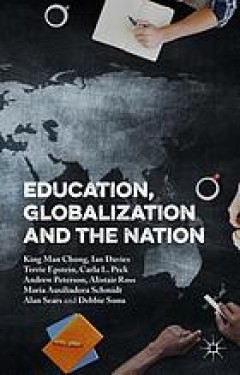
Education, globalization and the nation
Globalization' and 'the Nation' provide significant contexts for examining past educational thinking and practice and to identify how education has been influenced today. This book, written collaboratively, explores country case studies - Australia, Brazil, Canada, China, the UK and USA as well as discussing the transnational European Union
- Edition
- -
- ISBN/ISSN
- 9781137460349
- Collation
- x, 224 pages ; 22 cm
- Series Title
- -
- Call Number
- 370.9
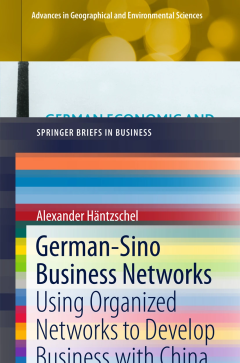
German-Sino Business Networks
In this book, Alexander Häntzschel presents the benefits of organized networks and provides a first-ever overview of German-Sino business networks. Based on more than 20 expert interviews and research of 30 different cases, the analysis covers the different forms of organization, their target groups and members, services and activities, and accessibility and membership fees. Complementary to t…
- Edition
- -
- ISBN/ISSN
- 978-3-319-17857-8
- Collation
- XIX, 105
- Series Title
- -
- Call Number
- 330 HAN g
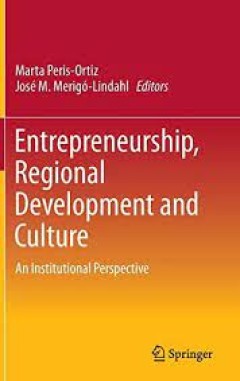
Entrepreneurship, Regional Development and Culture An Institutional Perspective
The aim of this book is to analyze the relationships among entrepreneurship, regional development and culture in the current economy. Using an institutional approach, it examines the main theoretical issues and practices and their effect on different dimensions of society and the economy. Business creation is considered a key element of economic growth, innovation and employment. In recent year…
- Edition
- -
- ISBN/ISSN
- 978-3-319-15111-3
- Collation
- 31 b/w illustrations, 3 illustrations in colour
- Series Title
- -
- Call Number
- -
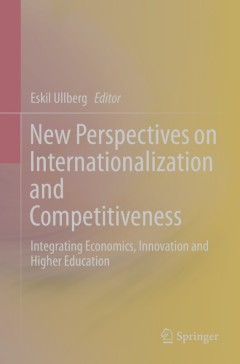
New Perspectives on Internationalization and Competitiveness
This volume showcases contributions from leading academics, educators and policymakers derived from two workshops hosted by the Interdisciplinary Center for Economic Science (ICES) at George Mason University on internationalization and competitiveness. It aims to present key areas of current research and to identify basic problems within the field to promote further discussion and research. …
- Edition
- 1
- ISBN/ISSN
- 978-3-319-11978-6
- Collation
- XV, 185
- Series Title
- -
- Call Number
- -
 Computer Science, Information & General Works
Computer Science, Information & General Works  Philosophy & Psychology
Philosophy & Psychology  Religion
Religion  Social Sciences
Social Sciences  Language
Language  Pure Science
Pure Science  Applied Sciences
Applied Sciences  Art & Recreation
Art & Recreation  Literature
Literature  History & Geography
History & Geography